[Very informative interview by Jim Rizoli with Benton Bradberry and the story behind his excellent book that exposes the lies behind our “official” understanding of the events of the 20th century whereby Germany is most wrongly portrayed as the “evil villain“. The truth is the very opposite — KATANA.]
https://www.youtube.com/watch?v=lc-l5AYu6fg
Click on the above link to watch the video.
NOTE: Commenter mblaineo (see comments section) submitted the full text of the transcript.
I applaud him for his efforts in doing his bit to help bring truth to the public about recent history that is suppressed by our enemies.
“The Myth of Germany Villainy“
Author Ben Bradberry Interviewed
by
Jim Rizoli
January 6, 2016.
Ben Bradberry, who wrote The Myth Of German Villainy, is interviewed by League of Extraordinary Revisionists Co-Founder, Jim Rizoli.
_______________________
Neither Kaiser Wilhelm nor Adolf Hitler wanted war. Both WWI and WWII were thrust upon Germany by the Allied powers. Germany’s great sin was emerging too late as a consolidated nation-state and upsetting the long established balance of power scheme in Europe. The already established great powers, Britain, France and Russia, joined together in 1914 to destroy this new rival. When Germany rose phoenix-like from the ashes of WWI to again become a great power, they finished. the job with World War II. The deliberate destruction of Germany during the Second World-War can only be compared.to the Roman destruction of ancient Carthage, and it was done for the same reason — to destroy a commercial rival. The “official” history of World Wars I & II, the story we learned in school, is a myth.
As the title “The Myth of German Villainy” indicates, this book is about the mischaracterization of Germany as history’s ultimate “villain“. The “official” story of Western Civilization in the twentieth century casts Germany as the disturber of the peace in Europe, and the cause of both World War I and World War II, though the facts don’t bear that out.
During both wars, fantastic atrocity stories were invented by Allied propaganda to create hatred of the German people for the purpose of bringing public opinion around to support the wars. The “Holocaust” propaganda which emerged after World War II further solidified this image of Germany as history’s ultimate villain. But how true is this “official” story? Was Germany really history’s ultimate villain? In this book, the author paints a different picture. He explains that Germany was not the perpetrator of World War I nor World War II, but instead, was the victim of Allied aggression in both wars. The instability wrought by World War I made the 1917 Bolshevik Revolution in Russia possible, which brought world Communism into existence. Hitler and Germany recognized world Communism, with its base in the Soviet Union, as an existential threat to Western, Christian Civilization, and he dedicated himself and Germany to a death struggle against it. Far from being the disturber of European peace, Germany served as a bulwark which prevented Communist revolution from sweeping over Europe. The pity was that the United States and Britain did not see Communist Russia in the same light, ultimately with disastrous consequences for Western Civilization. The author believes that Britain and the United States joined the wrong side in the war.
About the Author
Benton L. Bradberry served as an officer and aviator in the U.S. Navy from 1955 to 1977, from near the beginning of the Cold War to near its end. His generation was inundated with anti-German propaganda and “Holocaust” lore. Then, in his role as a naval officer and pilot, he was immersed in anti-Communist propaganda and the war psychosis of the Cold War era. He has had a life-long fascination with the history of this period and has read deeply into all aspects of it. He also saw much of Europe during his Navy years and has travelled widely in Europe since. A natural skeptic, he long ago began to doubt that the “propaganda” told the whole story. He has spent years researching “the other side of the story” and has now written a book about it. The author is a graduate of the Naval Post Graduate School in Monterey, California with a degree in Political Science and International Relations.
TRANSCRIPT
(69:33 minutes)
[00:00]
Jim Rizoli (JR): Hi everyone! I’m Jim Rizoli, this is Rizoli TV, and today we have a special guest, Benton Bradberry. And the reason why I wanted to have him on today is because he wrote a book, “The Myth of German Villainy,” and there’s the book right there if you can see it. And out of all the books I’ve read, I read a lot of books, and I thought that this was probably the best book I’ve ever read dealing with the whole picture of Germany from the beginning all the way up till now. I’ve never read a better book than this, and I’ve been telling a lot of people about the book. So Benton, do you want me to address you as Ben or Benton?
Benton Bradberry (BB): Ben. Ben is fine.
JR: Okay, so Ben is the way we’re going to address you then, that’s fine. And Ben, maybe you can tell us a little bit about where you live, and then we’ll get into some aspects about the writing of your book. So where do you live?
BB: Yeah, I live in Jacksonville, Florida. And I was born in 1937 in Oak Grove, Louisiana, which is a little cotton town on the southern tip of the Mississippi Delta, and I grew up in West Monroe, Louisiana. Now, you’ve probably heard of that, as small a place as it is, because that’s where the Duck Dynasty lives.
JR: Oh, is it, okay. Well, I’ve never watched them, so I don’t really know.
BB: Okay. So anyway, I grew up in the Duck Dynasty culture in West Monroe, Louisiana, out in the country. And we were very poor growing up, we had ten kids in the family, I had a twin brother. My dad was an auto mechanic, my mother stayed at home and, … Well, she had 10 kids so she could hardly do anything else. And when I graduated from high school my twin brother and I joined the Navy, which was the, … There were no prospects for us in West Monroe, Louisiana, which was the best thing that ever happened to me. And I scored pretty high on the basic battery test when I went in, so I was sent through a series of Navy schools and wound up as a radar operator on a big Super Constellation four-engine plane. That’s the one used in the airlines. And it was equipped with long-range radar, and we were deployed up to our Argentia, Newfoundland. And we flew a loop all the way down to the Azores islands and back about every other day, it took 16 hours to go. And we were guarding against being bombed by Russian bombers, which, looking back is absurd, but at that time we were told to believe it.
[Image – click to enlarge] Argentia Naval Air Station, Newfoundland in the late 1940s.
[Image – click to enlarge] A Super Constellation four engine aircraft.
[Image – click to enlarge] Sixteen hour flights in a Super Constellation from Newfoundland to the Azores islands and back.
Anyway, we only lasted a couple years because those planes were rendered obsolete by long-range, land-based, over-the-horizon radar. So they decommissioned our squadron and I went down to the Hurricane Hunter squadron here in Jacksonville and spent a year and a half in that chasing hurricanes. And the officers I worked for thought I was a pretty bright kid and so they arranged for me to go over to Pensacola, Florida to enter the flight training program. And I spent two years in flight training and came out as a helicopter pilot, flew fixed wing also, but wound up in a helicopter squadron in Norfolk, Virginia, which was anti-submarine, anti-Russian submarine. And we were at sea about two-thirds of the time, and then back at home base about a third of the time. And we drilled and practiced, drilled and practiced on how to detect and destroy Russian submarines.
[Image – click to enlarge] WV-3 Hurricane Hunter at NAS Jacksonville in 1950s
JR: Wow. Oh, gee, that’s interesting. So what happened after that?
BB: Well, then I went out to the, … Well, several places. I went down to training command in Pensacola as a trainer, as an instructor pilot. Later on I went out to Vietnam and was a helicopter pilot out there.
JR: Wow! wow.
BB: Won an Air Medal and some other medals and so forth. And from there I went to Navy post-graduate school. Now mind you, I was only a high school graduate at that point, and I was lucky to get in the Navy post-graduate school and I graduated with a degree in Political Science and International Relations with honors, by the way. And then went back to the fleet for another tour, and then I retired. And in Jacksonville is where the Navy turned me out, so that’s how I happen to be here.
[Image] The Air Medal is a military decoration of the United States Military. The medal was created in 1942 and is awarded for meritorious achievement while participating in aerial flight.
JR: So how long were you in from beginning to end?
BB: Twenty-one years.
JR: Wow. So you retired from the Navy?
BB: From the Navy, yeah.
JR: Okay, wow!
BB: I was in from 1955 to 1977.
JR: Wow. So, after your retirement what did you do for work?
BB: Well, I planned ahead a little bit, and my wife and I got real estate licenses and we went to work for a large real estate company here with about 300 or so sales people. And within a year my wife was the top salesman and I was number nine.
JR: Wow.
[05:00]
BB: So we were good sales people, and so we opened our own business, real estate business, and rose up to be the third ranking real estate business in Jacksonville. And we got divorced. I guess too much togetherness after all that separation in the Navy, got divorced and sold the business, which was kind of stupid. I took the property management division out, built it up to be the second largest property management business in Jacksonville. A few years later I opened a dental business, of all things — I’m no dentist!
JR: Ah, no kidding.
BB: And so now we have been in that business for 26 years.
JR: So you’re a dentist?
BB: I’m not a dentist, I just do the business side of it and we have dentists that, …
JR: Oh, okay, okay. Are you married now?
BB: Yes, I went out to Ukraine about 21 years ago, 22 years ago, with a doctor friend of mine and we went to tour the regional hospital he wanted to, in Kiev, Ukraine. Our tour guide for the hospital was a young beautiful gynecologist named Morika, and I married her.
JR: Okay, so she’s the blonde woman. She’s blonde, right?
BB: Yeah. And she came back here. We’ve been married 21 years.
JR: Oh, wow.
BB: And she and I run the business together.
JR: Okay, so you run a dental, … Some sort of dental business type thing?
BB: A dental business.
JR: Okay. Wow.
BB: And how I happen to write these books is that the business after all those years pretty much runs itself. We have talented people in every job. And my job, … I have an office upstairs and a computer and a lot of time on my hands as everything, … All the wheels are turning, so I wrote two books.
JR: Okay. What was the other book you wrote then?
BB: The other one was a memoir, autobiography, called “Putting on Airs,” [1] and it was about my military service and all the traveling around the world I’ve done, and that kind of thing. But anyway, we’ve been very prosperous and life, thank god, and I still work and we still own the business.
[Image] Puttin’ On Airs: Making it Against the Odds The Story of My Life
JR: Okay. All right, so now let’s talk about this book here. Because I’ve never read any book like it. This is a very unique book. How did you get into the topic with this book?
[NOTE: Some dialogue regarding problems with the audio is not included here.]
BB: I’ve been a serial reader, one book after another, since I was a child. And I’ve read hundreds of books, and this, … Events of the 20th century, World War I, World War II, even back in the Franco-Prussian war of the previous century, have been an interest of mine. I’ve got a degree in International Relations and Political Science. And you said, this is the first comprehensive book you’ve read that starts from the beginning and goes through, …
JR: Well, yeah.
BB: Yeah. And that is interesting, because reading these books about these events in the 20th century, they’re treated, World War I, the Hungarian Revolution, the Spanish Civil War, World War II are all treated as separate and distinct entities without very much reference to the other events.
And it began to occur to me that these were not distinct individual isolated events at all but were a pattern that began in 19, … or even 1870-71 with the Franco-Prussian war, I would say it even began there, and bring it all the way even to the present day, are all a string of related events. And so I felt that that needed to be treated that way, to start from the beginning and take it all the way through World War II.
JR: Okay. Now, if you could just sum up your book, if you had to kind of sum it up what would you… like if you had to say to someone, “Here’s what my book is about.”
BB: Yeah, the main theme of the book is the mischaracterization of the Germans as a people and the German nation. They’ve been totally mischaracterized. They’ve been made out to be, by relentless propaganda beginning with World War I and even going on today if you tune into the History Channel [aka, “Hitler Channel”] you see it even now, this relentless anti-German propaganda painting these people as somehow uniquely different from everybody else, they were predisposed to violence, predisposed to war, and pre-disposed of following a dictator, blindly following him. Oh, this is my phone, let me…
[10:10]
JR: Okay. I can edit this out so don’t worry. If something happens then just up and start up again and I edit that out, so don’t worry about that.
BB: Yeah. And anyway, where was I?
JR: Well, about how the German people have been villainized.
BB: They’ve been characterized as, … Anyway, as I said, I read a lot. And I started to read books written by Germans, Germans soldiers. One I remember was “The Deutschland Division,” written by an enlisted man, and talked about the invasion of Russia and going into Belarus, he talked about his fellow soldiers and about his officer that was over him who was captain that he highly admired and all this.
And I said, these people are the same as we are. Soldiers in the Army, they’re fighting for their country. And soon you begin to realize that there is nothing unique about the Germans, except if you want to say that they’re unique, they’re uniquely civilized and cultured and capable as a people. And when I started to realize that it put a whole new twist on the, … I began to see that the way the Germans are portrayed, were and are portrayed, is pure, … The result of propaganda, pure and simple.
JR: Right. Now, I know you get into…
BB: Oh yeah, let me just say that the second theme is the role International Jewry, the Jews, played during this 20th century, and it was central. It’s taboo to make too much about that today, they’ll attack you if you do, but they had an inordinate control over events during this period. They surrounded the leaders of the Allied countries and virtually dictated what our foreign policy was. And even the occupation was dictated by the Jews, in terms of the occupation and in terms of the surrender and everything.
JR: Right. Now, what interested me about this, and that’s why I really liked the book, was you explained that in the beginning Britain and France actually made a move on Germany because, … It was jealousy, I mean, because of their economic prosperity.
BB: Yeah. Well, more than just jealousy. Germany, as you know, became a consolidated nation state in 1871 after the Franco-Prussian war. Otto von Bismarck after the war managed to pull all… Germany was just a geographic expression before that for Central Europe, all the little German entities in central Europe that spoke German, and there were about 230 of them or something like that, little private estates, monarchies, principalities and so on. And Bismarck managed to bring all these together and create the modern German state.
And after doing so they began to grow exponentially. And industry, they took the lead in technological development, chemistry, everything. And they began to out produce Britain in manufacturing, and even take some of Britain’s markets away. And Britain has always, they’ve always been the superpower… I mean for a couple hundred years the superpower of the world, and they’ve always had a sharp eye on the continent of Europe and they never permitted any consolidation of power which would compete with the British Empire, and Germany was a competitor. [See “Vampire of the Continent”*]
And they began to scheme about how Germany could be cut down to size, and so Britain had that reason to go to war with Germany, they wanted to destroy Germany’s economic power because it rivaled that of the British Empire.
* [“Vampire of the Continent”, published in 1916 as an English translation of a German book will be posted here at a later date.]
Now, France had declared war on Prussia, and the Franco-Prussian war of 1870, I won’t get into why, but they lost the war. And they had to pay reparations, and Germany took the two provinces of Alsace and Lorraine and made them part of Germany. Now, they were a majority German-speaking ethnic German population anyway which had previously been taken away from Germany by Louis XIV, I think it was. So they had a cause and a justification for it. But France during all of this, … After that, they focused on and obsessed over and eventual war against Germany to get their colonies back and also to salvage their honor. They taught in their military academies, politicians talked about it all the time. So France was seething for the opportunity to get into a war with Germany.
[15:07]
Russia now had wanted a warm water outlet from the Black Sea through the, … Istanbul, the strait there. What’s it called? I forget. [Bosporus Strait] But unfortunately that was controlled by the Ottoman Empire which was an ally of Germany, and Germany had a fleet there in Istanbul. So Russia wanted to go to war against Germany so they could claim the city of Istanbul and control the strait for an outlet from the Black Sea.
So you had all these three countries together that wanted war with Germany and would obtain something from war with Germany. Germany did not want a war with anybody, they were doing fantastically well without a war. And so the pot was boiling and all that was needed was a trigger to cause this war to explode, and that trigger was provided when the Archduke Franz Ferdinand and his wife Sophia went down to Bosnia and were shot, murdered by this guy Princip, what, Gavrili I think his name was. [Princip Gavrilo]
JR: Now, Ben, what about the, … I was reading that there was a train line that was going from up top there all the way down to Turkey or somewhere that they were making a beef about too, the British. They weren’t happy that the Germans were putting a train line. Did you ever read about that?
BB: I have read about it but I don’t know much about it, I don’t remember much about it, but I think that was a, … All those were factors.
JR: Well, right, they were trying to open up trade with those countries, you know, where Turkey was and everything, from Germany all the way down. And I forgot the name of the train line. [Berlin to Bagdad Railway]
[Image – click to enlarge] Map of the proposed Berlin to Bagdad railway.
BB: Germany was also building a fleet to compete with the great Royal Navy, and that was another factor.
JR: Okay.
BB: So all of these were factors that Great Britain began to feel that they were being threatened by the growth of Germany. And I think also Great Britain at the time felt themselves to be in the ascendancy [descendancy], they weren’t growing anymore, and they were watching across the channel as Germany was in the ascendancy, and they felt that they had to do something before they didn’t have the power to.
JR: But now, as this war went on, World War I, weren’t Germany winning, weren’t they winning against them?
BB: Yes. I think in 1916, what, about November, something like that, they made a peace offer.
JR: Right.
BB: Germany did. And Germany was, … It appeared they were winning on all fronts, especially on the Eastern front, but they were winning on the Western front too. And they made a peace offer, and Britain turned them down. They didn’t want, … I guess they felt they’d invested too much and they had to win as justification for the cost and so forth. After all, they went to work to destroy Germany, not to have peace with Germany. And so they turned it down.
And about that time a group of Jews, I think Chaim Weizmann was the leader of them, that kind of represented world Jewry went to Arthur Balfour, I think he was the Foreign Minister, and made a presentation. They said, we safely can bring America into the war on Britain’s side if you’ll just give us Palestine as a home for the Jewish people after the war is over.
[Image – click to enlarge] Arthur Balfour
They signed the Balfour Declaration* and the Jews got busy, all the Jews that surrounded Wilson, these powerful Jews like [Bernard] Baruch, … I can’t remember the names of the others without looking them up. [Louis Brandeis, Felix Frankfurter, Stephen Wise] But anyway, they were very wealthy Jews and they were responsible for Wilson’s success in politics, they made him President as a matter of fact, and so they had control over him.
*[See post: Background to Treason: The Balfour Declaration]
JR: Right, yeah. I heard they actually blackmailed him, actually.
BB: That was another factor, yeah. I’ve read that, I’m not definite about how much of that to believe. How much of that was actually a factor, but maybe it was.
JR: Yeah, yeah.
BB: But then six months after the Jews had went to Wilson, we declared war on Germany. Now, here’s an interesting aside. The Jews actually favored Germany before this and refused even to lend money to Britain and so forth, because the Jews hated Tsarist Russia. Because the Jews in Tsarist Russia were suppressed, and they had a program, international program of one day bringing the Tsar down. And they didn’t like Britain because Britain was allied with Russia, and Germany was against Russia so they liked Germany. But after they made this agreement, this Balfour Declaration agreement for Palestine, they switch sides overnight and threw all their international effort in with the Allies, finance and everything. And they cut off German finance and began to create revolutionary trouble in Germany at the same time.
[20:15]
JR: Right, right. Now, the thing that I read that really did for Germany was the blockades, isn’t that true?
BB: Yeah, that was instigated by Churchill. That’s where he’s just emerged there as a young man, a warmongering S.O.B [Son of a Bitch]. And they had a total blockade around Germany. I forget exactly when it started, but it was devastating. It caused the deaths of almost a million German people, starvation blockade, and women, children, old people mostly, but several million people their health was ruined as result of this.
After, … Okay, the Germans had made the peace offer, a status quo ante peace offer, “Let’s all go back home, nobody wins, nobody loses, let’s stop the war.” That was in 1916. Britain said no, and when the United States came in on Britain’s side, well, Germany simply could not stand up against this overwhelming combination of forces.
And so they had an armistice on November the 11th, 1918. And it was an armistice, they were supposed to stop fighting until they could work out a peace agreement, but the Allies treated it as a German surrender. And they got together in Paris at the Versailles Palace in 1919 and worked out this peace agreement which wound up as the Versailles Treaty. And they called the Germans, … They still had this blockade. For seven months after the war was over they maintained this starvation blockade, which was immoral and inhuman actually. And they called the Germans in and says, “Okay, sign here.” And they read it over and they were appalled, because the treaty held them responsible for starting the war, which they did not do, and held them responsible for all the death and destruction caused by the war. And they finally imposed reparations, some $35 billion in money at that time — I guess it’s in the trillions in modern currency — mainly paid to France and some to Belgium.
Now, this Versailles Treaty virtually enslaved Germany. It got their troops down, the number of people in their military, down to 100,000. Not enough to defend the country certainly, not even enough to maintain peace in the country. They took their merchant fleet entirely and divided it amongst themselves — the Allies did, not the United States, but France and Britain did it. They took large chunks of Germany and gave it to other countries, along with the German people living in those regions. Memel went to Lithuania, Silesia and part of East Prussia went to Poland, the Polish corridor cut Germany in two with East Prussia completely separated from Germany.
The Sudetenland, which was part of the Austro-Hungarian Empire, had 3.8 million Germans living there, lived there for hundreds of years, and they were the most prosperous people in the region, wanted very much to join Germany, wouldn’t allow it. Austria was cut off, I think they had about 7 million people, something like that, as a little rump state, completely unviable economically. They wanted to join Germany, the Treaty wouldn’t allow it.
And so the point of the Treaty, … I mean the purpose of the war was to knock Germany down as a competitor. And the purpose of the Treaty was to hold Germany down so they never would rise up and become a superpower again. So that’s what, …They took most of their coal mines, their richest farmlands. And finally they had to sign the Treaty because the people were starving, thousands a week were starving to death. And so they signed the Treaty but they didn’t agree with it, they said this is under duress.
JR: Right. So now maybe you can tell us a little bit how Germany brought themselves up by the bootstraps from this, and we can get into, maybe, Hitler coming onto the scene too, I suppose.
BB: Okay. Well, the reparations that France demanded caused a runaway inflation. Germany didn’t have the means of paying the reparations, but France demanded it and threatened to invade the country if they didn’t pay it, so Germany resorted to printing money to pay it, which caused the runaway inflation and destroyed the German economy. A few years later that was followed by depression, which was far worse in Germany than it was in the United States. And people were starving to death, something like 250,000 Germans in three years time committed suicide out of total despair. Thirty percent, … We had twenty, what, one or two percent unemployment in America at the time? They had thirty percent.
[25:00]
And so the people were demoralized, as I said, they were committing suicide, they were starving to death. And Hitler comes along and becomes Chancellor. I mean, it’s a long process, becomes Chancellor. And he became Chancellor, he campaigned to become Chancellor on the promise that he was going to take, … The Jews virtually controlled the country, to at least the extent that Jews control the United States today. They controlled every institution. And Hitler promised to take these institutions away from the Jews and give them back over to the German people.
Now here I’ll show you just one thing, how the Jews profited from this inflation. The Jews had access to international currencies, and they had pawnshops. The Germans had to sell everything they owned, and the Jews owned all the pawnshops, and so they wound up making big money off the Germans who ruined themselves. Not only that, they had to sell their land, their farmland, their homes, their buildings and so forth. And the Jews with international currency came in and bought it, and by the end of the inflation the Jews in Germany owned half of the real property in Germany.
JR: Wow.
BB: That’s one percent of the population.
JR: Right, right.
BB: And the German people knew all about this, understood what happened, and they were seething with resentment. So that’s part of the anti-Semitism that developed in Germany.
JR: Right, right.
BB: Hitler comes along and becomes, … He’s promising he’s going to take, … you know, hand over this property back to the German people who owned it. International Jewry, right after Hitler became Chancellor, declared war on Germany. Now, most people don’t know anything about this, but it was big in the papers at the time, and they made big speeches and announcements encouraging worldwide Jewry, … Now, these people are very powerful in finance, shipping, and they controlled the media, so they controlled public opinion. And they declared total war against Germany.
JR: Now, that was 1939, right? Or, …
BB: Before. ‘33. ‘33.
JR: Oh, okay. Because I thought ‘33 is when the, …
BB: That’s when Hitler became Chancellor, and within weeks after he became Chancellor international Jewry declared total war against Germany.
[Image – click to enlarge] Organized Jewry declares “war” on Germany on Friday, March 24, 1933.
JR: Okay, fine.
BB: Boycotts, cut off credit, wouldn’t permit German goods in Jewish-owned shipping lines, and so forth.
JR: You’re right. Okay, yup.
BB: Now, so here’s what Hitler did. Hitler was a very smart man. And of course he surrounded himself with smart people too, Hjalmar Schacht [Reichsbank President and Minister of Economics] and others. But the central banks all over the Western world are owned by Jews. — I mean, let’s be frank about it. It was then, it is now. — And the Jews owned the central bank in Germany. And how the central banks work is that they produce the currency for a nation and they lend it to the government at interest. So Hitler says, “We don’t need them.” So he came up with a new currency, the Reichsmark [actually introduced 1924] , and it was printed by the government, no interest, no debt.
Well, he went further, he established the barter, … Since you couldn’t have any, … Credit was cut off for international trade, he established the barter system, where they would, for example, trade a shipload of German coal for a shipload of Argentine wheat. And they had a system of keeping track of relative values and so forth. He established the principle, the policy of autarky, which is an economic term meaning economic self-sufficiency. He said anything that can be manufactured in Germany, will be manufactured in Germany regardless of the cost. And he imposed tariffs, a tariff wall which would protect it from outside trade. So that revived German industry.
Let’s see, what else did he do? He started an infrastructure renewal. He built the autobahn, which was, … Our own autobahn system, the interstate highway system, Eisenhower started that based on the German autobahn. He had the Volkswagen car built, and used Henry Ford as an advisor on how to do it and mass produce it and so forth. And this was a cheap car, family car — Volkswagen means “people’s car.”
[Image] The autobahn road system.
So within a couple of years the unemployment rate was cut down by about two-thirds. Within five years they had a labor shortage. Within five years they had the highest standard of living in the world in Germany. In a very short period of time. They had the highest incidence of private ownership of cars. More people owned a family car there than anywhere else. They created the “Strength through Joy” — is that what they called it? — program. [Kraft durch Freude, KdF] They eliminated the labor unions, because the labor unions were trying to suck the blood out of the industries, and established a government labor board which established wages and so forth. “Peace Through Joy”, or something, I forget what it is now. Robert Ley, Dr. Robert Ley was put in charge of it. They built ocean liners to take German workers on tours abroad, and they did all kinds of theater and stuff like that to enrich the lives of the German people. So they magically transformed Germany from this desperate impoverished people to a happy, prosperous, most prosperous people in the world. And Hitler and the “Nazis” — they didn’t call themselves Nazis, …
[Image] Dr. Robert Ley.
[30:10]
JR: Right, National Socialists.
BB: … National Socialists were highly praised by leaders all over the world.
And the German people, … You know, you get the impression reading the propaganda that this was an oppressive regime, and they were locking everybody up. That’s not true at all. The German people were happy and they loved Adolf Hitler.
JR: Oh sure, yeah.
BB: Now, the propaganda, because the Jews controlled the media throughout the West, the people who were suffering — if you can call it that, but not really that much — were the Jews, who are 9/10 ths of one percent of the population, 500,000 Jews in a country of 65 million people.
Now, the Jews invented Communism. Communism and Judaism is one and the same thing. They were constantly inciting revolution, they were inciting, … The Jews also controlled the labor movement. They were inciting riots and strikes and so forth, and just causing trouble all around, and they were relentlessly trying to take over the German government and make a Soviet Socialist Republic like they had done in Russia. So Hitler had Dachau built and he locked all these people up. Not because they were Jews necessarily — not even actually — but because they were Communists and labor troublemakers. And it turned out that almost all of them were Jews. And the international Jewish press screamed bloody murder over this, and further vilified Germany.
JR: Right. So now maybe you could tell us about, … see, a lot of people think that Hitler had a policy that he wanted to kill them all, extermination. But his real policy was emigration, right? He wanted to get them out?
BB: Exactly! Yeah, exactly. They had the Nuremberg laws, where they restricted, … You know, the Jews really were inordinately powerful in Germany. The majority of the professors and universities were Jews, the majority of the lawyers, doctors, and they filled up the government, and they controlled everything. So Hitler decided that he was going to, you know, reduce their power. And so, what was the question you asked me, I’m sorry?
JR: Well, I’m getting into the Transfer Agreement, that’s what I’m getting into.
BB: Oh, that’s right, yes. And he wanted, … Yeah, he wanted these people out of Germany. What Hitler wanted to do was have a homogeneous population of German-speaking Germans, he was a National Socialist. National means having a homogeneous German people, and Socialist was to take care of all of them and create the quality and this kind of stuff.
So, to do that he wanted, … The Jews keep bringing up the gypsies, so they’re not alone, I think, but he wanted to get the gypsies out — they were almost insignificant — but he wanted the Jews to emigrate out of Germany. And so they had an agreement with the people down in Israel, Palestine at the time, …
JR: The Zionists, the Zionists.
BB: … Transfer Agreement, to enable these Jews to, … They opened a bank in Palestine, which was a branch of a bank in Germany so they could transfer money back and forth, and they permitted these Jews to transfer their wealth down to Palestine. If they’d move down there they could transfer their money. And it’s a lie that these people were stripped of all their wealth. They weren’t. And so the object was to get them to emigrate out of the country, and by 1939, … they had 500,000 Jews in Germany in 1933, but in 1939 they had 190,000. And they annexed Austria also, and they had 180,000 Jews, and by 1939 they had 40,000. So most of them had emigrated peacefully. [Not to Palestine, however, but to America and other European countries.]
[35:00]
JR: Right. All right, so now we have a little situation here. The Zionists, as far as I understand it, they’re the ones that wanted their own people out of there too, to send to Palestine, right?
BB: Yeah. Okay, you’re breaking up again, but I heard what you said.
JR: Okay.
BB: Zionism was a movement that was started by Theodore Herzl back in the late 1800s, and because the Jews were discriminated against — they brought it on themselves, but because they were — he thought the Jews should have a homeland of their own. They had been before, that spread all around the country [world] with small Jewish minorities living amongst Gentile host populations, … And Theodore Herzl started the Zionist movement and a lot of other people joined in, because they thought the Jews should have a homeland of their own and that would solve all this discrimination problem. So they decided that Palestine was going to be it, the Balfour Declaration gave it to the Jews. And so in order to make this thing work, they had to [have] Jews all over Europe and America and so forth, and the Middle East, emigrate down to Palestine and become Jewish citizens.
Now, a lot of Jews didn’t want to do that because they liked it just fine where they were. And so Hitler and the “Nazis,” if you will, worked in cooperation with these people down in Palestine to have these Jews emigrate down. And they let them have their wealth and encouraged them to go down, but leave voluntarily. And a lot of them did.
JR: Now, what happened to stop that though? In other words, it stopped, right? So, …
BB: It stopped. The British stepped in and said:
“Wait a minute, this is causing trouble with our Arab friends down here. This is going to be a disaster.”
Of course they were appreciative, because it has turned into a disaster. And they stopped it, and so then when the war began everything was on hold as far as Palestine.
JR: So now, what did Hitler have to do with these Jews now? I mean, you talked about Dachau, but that was political prisoners. So now the other Jews who didn’t go, what happened there with them?
BB: Well, International Jewry, … To look at it from the German’s perspective, I mean, the official story now is that these Jews for no reason whatsoever were discriminated against and harassed and persecuted and so forth, just because they were Jews. That’s not quite true.
International Jewry was still in a war, a declared war on Germany, and the Jews that lived in the Diaspora, as it’s called, these small populations all around other countries, were part of the international Jewish nation, considered themselves part of the international, … the international Jewish leaders considered them all. So these “German” people living inside Germany were in a declared war against the country they lived in, for all practical purposes, and they made a lot of trouble, revolutionary trouble. So that’s why when the war started they started to lock them up in concentration camps.
But you know, it’s interesting. The story is that they had this program, a German government program of rounding up all — all — of Europe’s Jews and putting them in concentration camps and then exterminating them. My wife and I went out to Dachau several years ago, ten years ago, something like that, and we got a taxi driver to take us out to Dachau in Munich. And the taxi driver, he had a big Mercedes and happened to be an engineer, he happened to be Jewish also, he was an engineer and he used his car part time to take tourists to make extra money. So we were talking about events as we drove out, and he said his mother spent the war years in Munich. And I said:
“Wait a minute, I thought, …”
— This was all part of my process of developing my ideas today. — I said:
“Wait a minute, I thought they rounded up all the Jews to put them in concentration camps?”
He said:
“Well, not all of them.”
So, …
JR: Yeah. Well, I mean, I’ve heard that Hitler actually had German Jewish soldiers, …
BB: Yeah.
JR: … that were, … I mean, that [over talk] .
BB: Field Marshall Milch. Let’s see, what did he do? Part of the military-industrial complex that he controlled, he was a Jew. And there were others.
JR: Right. Yeah, I know there was a book written on that, “Hitler’s Willing Soldiers,” or something like that. A hundred and fifty thousand [over talk] .
[40:00]
BB: Yeah, exactly. The assimilated Jews had no problem. It was the ones who identified as communists and as brothers of the Bolsheviks and the Soviet Union who constituted a fifth column or a Trojan horse inside Germany, that they worried about.
JR: Right, right, okay. And they had just reasons to corral them all up, right, and do that?
BB: I’m sorry, you’re breaking up?
JR: They had reason to do that. The Germans had just reason to do that.
BB: They had just cause to do it. Of course they did. They’d have been stupid not to have isolated these people who were devoted to undermining the country that they lived in on behalf of international Jewry whose headquarters were in Moscow.
JR: Right, right. Maybe now you could talk to us a little bit about the “Holocaust”, how that came into play here.
[Image – click to enlarge] Maps of the camps.
BB: Yeah. Let me tell you a little story, I’ve told this before. The first book I read, like I was a brand new ensign, that’s like a second lieutenant in the Army, a brand new ensign in a Navy squadron, a pilot, and somebody had bought a book called “Treblinka.” And I forget the author of it now [Jean-Francois Steiner (1966)], [2], but it was passed around, a number of us read it. I read it and I was appalled. This was what went on, written by a Jew about what went on in the Treblinka concentration camp. One little thing the Nazi guards did that stands out that I remember is that they would line Jews up in a row, one behind the other, and they would shoot the Jew in the chest in the front with a bullet to see how many bodies it would pass through. Then they would change calibers, a larger caliber, and another line of Jews, to see how many bodies it would pass through. And they did this for sport. And I was a little skeptical of that even then; now it sounds absurd. It turns out this guy, …
Anyway, this was the first “Holocaust” book I ever read, and I was so, … it was like seeing a bloody auto accident, you can’t look away and yet it’s repellent at the same time. And I read everything I could get my hands on about the “Holocaust” after that, picture books, everything. And swallowed it — I had no countervailing arguments — but began to feel that it was exaggerated, you know, that a lot of these things, wait a minute, that’s implausible. And not only that, you’d see picture books:
“Wait a minute, I just saw this picture and another book, it had a different caption.”
And then I started to wonder, we have thousands and thousands and thousands of pictures of the camps and the war, but never a picture of a gas chamber, never a picture of dead bodies being pulled out of a gas chamber. They show a bunch of fully dressed people, women, children with a Star of David on their shirt, by train where they just got unloaded, and the caption would say:
“These people are on their way to the gas chamber.”
Well, they could have been on their way to lunch, you know.
JR: Right.
BB: But so you start to be skeptical eventually. Now, I was skeptical, and I went out to Poland in 1989 with a, … Or met a friend out in Lodz, he had a distant relative out there and I stayed with him for a while. I went to Warsaw and looked at all, … traveled all around to find these sites, I’d been reading all about it and I wanted to see what it looked like firsthand. Went to Warsaw ghetto and not much of it left. Then I wound up down in Kraków near Auschwitz, and I wanted to go out to Auschwitz.
And I asked the maître d’ if he could connect me with a taxi driver or a tour guide if you knew something about this. So I met this guy and he’s Polish history professor. And that’s not unusual, by the way, we had a history professor in Istanbul as a tour guide also. But I asked him why he did that, he said he could make $400 a month as a tour guide and he could make $100 a month is a history professor, so that’s why he did it.
He took me all around the sites in Kraków, Hans Frank’s office, he was the Gauleiter of that area. The last day we went out to Auschwitz. Now, it turned out the professor was born in Auschwitz — in Oswiecim, that’s the Polish name of the town — and they lived in a little house, he and his family, right outside of the wire of Dachau. And you can see everything there. He took me there, …
JR: Now, do you mean Auschwitz? You’re talking about Auschwitz.
BB: Auschwitz, I’m sorry.
JR: Okay, all right.
BB: But it’s surrounded by farmland. — No Dachau, Dachau. — I don’t mean Dachau, I mean Birkenau.
JR: Oh, Birkenau.
BB: Birkenau, yeah.
JR: Right.
[Image – click to enlarge] Auschwitz Camp Complex.
BB: Okay, they’re surrounded by farmland with houses all around it, and you’ve got a big fence around the compound, and you can stand outside and see everything. There’s no wall, nothing is blocked, you can see everything. Now, this guy was in his mid to late 60s and had been a teenager during the war, this was 1989. And so we went out to his house where he’d lived, and I’m standing there looking into this compound with all the barracks buildings and what remains of it. And I said:
“Well, how did you feel standing out here watching all this brutality and murder going on inside?”
And he smiled, and he said:
“Oh, those are just stories. Nothing of the kind happened here.” He said, “This was a well organized, well run labor camp.”
I said:
“What about the gas chamber?”
He said:
“There was no gas chamber.”
And that’s the first time I’d heard that. And, “Hmm, no gas chamber?”
So then we went inside. He said what he saw as a boy was columns of workers that would line up outside the front gate and they’d be controlled by two or three armed guards and they would walk off to the factories that circled Oswiecim. War fact[ories], … producing war material.
[46:00]
JR: Sure, yeah.
BB: And they’d go out in the morning and come back in the evening. If they were going some distance they had trucks that picked them up and took them out, brought them back. Anyway, we went inside and took the official tour, this was in ’89 and there weren’t a lot of tourist at that time, there are floods of them now I understand. But we walked around and followed the official tour guide and he explained all the horrific things that happened. Here’s a bin of women’s hair. Supposedly they kept the Jews’ hair off so they could sell it to a mattress company to make mattresses. And they had shoes, a bin of shoes and all that. And he pulled me aside:
“Okay, they cut their hair off for lice control, because, … to control typhus. They have bins of shoes because they gave them a new uniform and new shoes.” Okay.
JR: Yeah.
BB: And on and on. And every place we stopped he pulled me aside and told me what the real story was. Then after the tour, … Anyway, they took us to the gas chambers. He said:
“This was no gas chamber.”
This was a bomb shelter or something.
JR: Sure, yeah.
BB: So he took me around and showed me this Olympic-sized swimming pool they had. I went to both Auschwitz and Birkenau, and I forget which, … where the swimming pool was exactly.
JR: Auschwitz I. Auschwitz I has the swimming pool.
[Image] Auschwitz swimming pool available to inmates.
BB: I think it’s Auschwitz I that has the swimming pool, yeah.
JR: Yeah.
BB: And there was a theater where the inmates were allowed to go. They had an orchestra composed of inmates, they had a soccer field, all of this stuff. A hospital. He said:
“They weren’t slaughtering people here.”
And after that, since then, I don’t believe a word of the Holocaust.
JR: I know. Well, that’s my expertise, that’s what I’ve been getting into myself.
BB: I noticed, yeah.
JR: Yeah. Okay, so now why do you think the Jews are so adamant about that “Holocaust” claim?
BB: Well, I think they’ve profited enormously by it. It was a justification for the creation of the State of Israel. Harry Truman recognized them, the argument was the Jewish people had to have a place to avoid this happening to them again. They have gotten enormous reparations from Germany, something like, … I don’t know how many billions they’ve gotten [About 100 billion]. Even 70 years after the war is over, you’ve got half a million Jews that are on lifetime pensions from the German government, living mainly in America and Israel as Holocaust survivors.
JR: Right.
BB: Oh yeah, another thing, they put that number on their arm. Why in the world did they do that? You start to ask the question:
“Why would these Germans bring all of these Jews in on a train, tattoo a number on their arm, cut their hair off, send them to shower, give them a new uniform, if they were going to exterminate them?”
JR: Yeah, right. Now, the other thing I find too about the “Holocaust” myth is that they actually had to protect the Allies, or make it look like the Allies were innocent, and make the Germans look like they were the bad guys. So everything the Allies did wrong was covered up by the “Holocaust”.
BB: Yeah, it was justified.
JR: Yeah.
BB: The end of the war was total chaos for Germany. I say that in the book, that 8 million Germans died during the war, and 13 million died after the war was over, as a result of the abuse and slaughter and starvation and all that happened to the Germans after the war. And we justified this somehow because they had carried out this “Holocaust”.
JR: Right.
[50:00]
BB: And the Nuremberg trials afterwards, the “Holocaust” was the central theme. And it justified executing a lot of Germany’s leaders.
JR: Right. How many Jews do you think died at the most, what you think?
BB: It’s certainly less than a million. The 6 million was just plucked out of the air. The 6 million is an iconic number that’s gone back to the beginning of the century, and they’ve used, … They’ve stated it numerous, numerous times, that 6 million Jews are in danger of dying, you know, over and over and over again. And sure enough, when the war was over 6 million died. The number is absolutely meaningless. They modified the number that died at Auschwitz down from 4 million down to 1 million, yet they didn’t reduce the total number. So the 6 million is just an iconic number. I’ve read that not more than 65,000 Jews died, up to less than a million, so certainly, …
JR: That’s what I get out of it.
BB: But that’s got to be compared to 55 million died, all totaled. What’s so special about the Jewish number? So when 55 million people died in Europe as a result of the war, and 1 million or 6 million, whichever.
JR: Well, look at the Germans, how many Germans died. Right, you said 20-something, 20 million Germans died.
BB: Yeah, they expelled 15 million of them from East Europe, Poland, Prussia, East Prussia, and Hungary, everywhere else, and pushed them into Europe, and 3 million of them it’s estimated died from brutality, outright murder, exposure, everything. And they were brutal to these German populations living, … still living in the Sudetenland, for example, the Czechs were just brutal to these people, mass murder.
JR: Right, right. Let me ask you this, in regards to you writing this book. Have you had any flack, any problems? Because again, this book, I mean, it really just exposes the Jews, it exposes the lies, you know, everything that we’ve been talking about here. Have you had any repercussions on this?
BB: Nothing personal, yet. I’m surprised I haven’t. A couple of people around here in Jacksonville who, you know, have commented it’s anti-Semitic, they read it. But the reviews, some of the reviews, for Amazon Books for example I’ve got about 125 that I think up to this point and almost all of them give it five stars, except for the Jews who give it one star.
JR: Right, I know, that’s always going to happen. Yeah. Well, that’s how you know you’re doing good. You know you doing good. [laughter] Yeah, I’m just very surprised that nothing’s happened to you. Because I get a lot of flack in what I’m doing.
BB: Oh, of course.
JR: And I mean, I don’t have, … I’m retired, so I don’t worry about working anymore, but when I was working they did affect my business, so I’m glad I retired. But they came after me like gang busters. I mean they just came after me unbelievably.
BB: Yeah. You’re breaking up again. Anyway, let’s go back and look at the Bolshevik Revolution in Russia.
JR: Okay.
BB: I’ve read a lot about that over the years, and I kept seeing these Jewish names pop up, obvious Jewish names pop up. They never identified the Bolsheviks as Jews, but there were a lot of Jewish names in there. And you kind of get the idea, wait a minute, there’s an awful lot of Jews involved in this. And then I started to go back and read, … I read one by Wilton — Robert Wilton, is that it? I think he was a reporter for a London newspaper and he’d been there throughout the war, and it was called the, … something about the death of the royal family. [“The Last Days of the Romanovs”] And he’s the one that laid it right out there, and it was kind of an addendum to the book, in the end. And he said that, … he named all the names.
[Image – click to enlarge] The Romanovs. From left to right: Olga, Maria,Nicholas II, Alexandra, Anastasia, Alexei, and Tatiana. Pictured at Livadia Palace in 1913.
And so I copied and pasted that in my book to show all the names. The reason I did it was you can throw numbers out there, but it’s a lot more impressive to have the names of all these individuals and put what their ethnicity is. But there was something like 555 or something like that. Of the top 550 people in the Bolshevik government, that controlled the Bolshevik government, 437 of them were Jews. And even the ones that were not Jews, a large number of them were married to Jewish spouses, Jewish wives.
And almost none of them were Russian, there were Polish, Georgian or Latvian, or whatever. The ones that were not Jews. I mean, there were almost no Russians in the Bolshevik government. They took control, this was a coup d’état, this Russian Revolution with Trotsky and Lenin was a coup d’état, a Jewish coup d’état of the Russian state. Nobody says that today, and the history books don’t say that it all.
JR: Right.
BB: They ruled over Russia as an alien force, and they lorded it over them. And they hated the Russian people because they’d been discriminated against and there was, … International Jewry hated Russia and it was on the top of their agenda to one day bring down the Russian government. Well, the war had weakened it sufficiently that now they were able to do it. And they killed the Tsar too, by the way, and his family, all Jews who did that.
[56:00]
JR: Right, right. Now, Benton, do you have any other books you’re working on now, or what?
BB: No, I’m trying to think of something. I’ve thought about writing something about the occupation of Germany and what happened during the occupation, I may do that.
JR: Yeah. Have you ever heard of the book “Hellstorm”?
BB: I read it, yeah.
JR: Oh, you read it. Yeah, because he talked about what happened when the Russians came in and all that.
BB: Mm hmm.
JR: Well, you know what I’d like to see you do, I’d like to see you go out on tour. [laughter]
BB: Well, I’ve been afraid of that, I’m afraid that tomatoes might be thrown at me or something, but, …
JR: Well, no. I mean, you’d have to started off really well, you know. I’d like to see that. I mean, it would be a great tour if you did that.
BB: If I retire I might do that.
JR: Yeah, that part would be good.
BB: I’m 78, and so they can’t do much to me at my age. I have a twin brother too, you know.
JR: You have what?
BB: I have a twin brother.
JR: Yeah, I know, you mentioned that at the beginning. Interesting. Well, I think that pretty much covers this, unless you have anything else you’d like to say about your plans, what you plan to do with the book or anything like that. Any plans?
BB: It’s done better than I expected. I didn’t write it to make money or anything. I wrote it because I had gotten to the point where I said:
“Somebody needs to put all this together.”
And because, you know, over the years reading one book after another after another, and especially reading the other side of the story written by Germans and so on, the dots begin to emerge, and you start putting them together and pretty soon it’s just crystal-clear, you see what happened.
JR: Right.
BB: And the Spanish Civil War, for example. I always thought, … I read Ernest Hemingway’s book, [“For Whom the Bell Tolls”] , I read half a dozen books on the Spanish Civil War, and in all cases they have these Jewish names on the Socialist side. And the American, … what’d they call it, the American group that went over there, I can’t think of it right now. [Lincoln Battalion] Anyway, a group of Americans that went over, their leader was a guy named [Milton] Wolff, who was a Jew. And the guy who was the head of the, … you know, the people who had been in the war back here, …
[Image] Milton Wolff (October 7, 1915 – January 14, 2008) better known as Milt Wolff, was a communist Jew subversive from the United States who acted as a terrorist in the Spanish Civil War, in his role as the last commander of the Lincoln Battalion of XV International Brigade. [3]
JR: Veterans you mean?
BB: Yeah, I’m trying to say the veterans of the Spanish American, … Civil War, …
JR: Yeah, yeah.
BB: … was a Jew. And I’m thinking, you know, you read all this stuff and you say:
“Wait a minute, there’s more to this than appears.”
JR: Yeah. Well, the whole slave trade was run by Jews.
BB: Yeah. But there is a common thread running through here that involves Jews.
JR: Right.
BB: And pretty soon you say, well, Judaism and Communism is the same thing. And when the Russians imposed, … I mean the Jews imposed their power over Russia they set about to kill scores of millions of Russians. They did it deliberately in the most bestial fashion you can imagine. They’ve been settling scores, and they were wiping out whole groups, the bourgeoisie, you know, which included I guess the aristocracy and the estate owners and the possessing classes, they set out to kill those people.
For example, they would leave, … They had this Cheka. I forget, … it’s an acronym, I forget exactly what it stands for. [Chrezvychainaya Komissiya – Extraordinary Commission (to combat Counter-Revolution)] But 75% of the members, the agents of this Cheka, were Jews. Of the 95% percent who were not Jews almost none were Russians, they were these Georgians, Poles and so forth, and a great number of those had Jewish wives. So this was a Jewish entity. They created the Comintern, the Communist International, for the purpose of exporting their revolution to Europe and bringing down existing regimes and replacing them with Jewish-controlled Soviet republics.
[60:10]
JR: Right, right. What do you think about the United States, do you think it’s controlled by the Jews?
BB: Yeah, yeah. You know, I was just reading, … I’m reading a book now about Allen Dulles than the CIA, I forget the name of it, but I’m halfway through it, and it’s talking about the origins of the CIA, the people from the Ivy League schools, you know, kind of the upper class in America. They’re the ones who joined the ISS [OSS – Office of Strategic Services] I think it was in World War II, which after the war became the CIA. He’s naming all these people, and it’s the American White Anglo-Saxon Protestant upper crust that runs the State Department at that time and the CIA. They were Arabists, they were called Arabists, they had an affinity for the Arab, … A close relationship with the Arabs, which was destroyed when Israel became a state in 1948.
[Image] Allen Dulles on the cover of Time, Aug. 3, 1953.
And then I was amazed at how, as this author was describing who ran the country in the 50s, White Anglo-Saxon Protestants, we have transitioned over, … They’ve been all totally displaced by Jews.
The Jews run every institution and every department of our government. The Neocons, neoconservatives. I don’t know if you know the origin of them, but they came out of the Trotskyite wing of the Communist Party. And they hate Russia. Why do they hate Russia? Because they hated Stalin. And they hate Russia now. It’s back to the same old, … Reverting right back to the pre-revolutionary years when the international Jews hated Russia, and now they’ve evolved right back to it. They controlled Russia from 1919 until shortly after World War II when Stalin began to turn against them and purge them, and then they started to leave Russia — after looting it, by the way.
[Image – click to enlarge] Just a few of the jewish Neocons.
And now the center, … That was the center of Jewish power, was the Soviet Union. And now the center of Jewish power is in Israel and America, about 6 million Jews in Israel, 6 million in America, who work together today, closely together, to bleed America for the benefit of Israel.
We send billions of dollars to Israel. American people don’t approve of that. But these Neocons that have positions of power and control in this country, funnel billions of dollars, the latest technology, everything, into Israel. They’ve got one of the most powerful armed forces in the world, in tiny Israel, with the latest technology. They got their nuclear weapons from us, I mean the technology to build them. They’ve got about 400 nuclear weapons. And Israel and American Neocons together control our foreign policy.
JR: That’s right. Now, would you say that it doesn’t make any difference who the President is, right?
BB: I don’t think so. Donald Trump MIGHT, but I’m not sure, make a difference.
But there is the Deep State, they call it, which pulls all the strings. So Obama wants to close Guantánamo Bay, for example. But he hasn’t done it yet. Why? Because it doesn’t have the power to do it. The real power are the people who make, … You know, that make the decisions and so forth. But, it’s incredible the extent to which our country is controlled by Israel and the Neocons in this country working together.
JR: Yeah. And it doesn’t look too promising, does it?
BB: No. And they’re the ones behind this multiculturalism.
JR: Right.
BB: I don’t know if you’ve ever heard of Kevin MacDonald.
JR: Oh sure, yeah! I read his stuff, yeah.
BB: I’ve read his stuff. He explains how they’ve done behind the scenes, you know, using front men, Gentile front men like Teddy Kennedy to pass the last immigration act in 1965, which opened up doors to these floods of Third World non-White, non-Christian people.
And they did it deliberately to undermine the White majority. And they got away with it because of this anti-Nazi propaganda, this racism they said. I don’t see anything wrong with nationalism. I think nationalism is the natural way that peoples ought to be organized, organize themselves. But he wanted a homogeneous German population, and the Jews have made that out to be sinful.
JR: Right. Yet if you go to Israel today, they don’t allow any of this there!
BB: That’s exactly right.
[65:00]
JR: A bunch of hypocrites. Unbelievable. Wow! Well Benton, this is really great, I think we covered from A to Z here quite a bit. Hopefully if you ever do get a chance to write another book I’m definitely going to be reading that. I’ve been telling everybody about your book.
BB: Thanks so much.
JR: Every place I go I say it’s the best book I’ve ever read to give me the whole story. Now I understand what happened with World War I, how World War II was just an extension of World War I.
[Image – click to enlarge] Béla Kun, a jew, was the leader of the Hungarian Revolution of 1919.
BB: Well, they tried to bring revolution to Europe, and they did overthrow Hungary for a time under Bela Kun. He had a 100% Jewish administration, and they raised bloody hell with, … Launched a war of terror against the Hungarian people. Admiral Horthy with the Hungarian, … I mean with the Romanian army came in and threw them out and saved, … But it caused intense anti-Semitism in Hungary as a result of that, what they did.
They came into Germany and for a time. They had the Soviet Socialist Republic of Bavaria, until the Freikorps came in and kicked them out. And then there was the Spartacus revolt, … Revolution in Berlin with Rosa Luxemburg and Karl Liebknecht, Jews, leading it. And then they tried the same thing in Italy, and Mussolini saved Italy from the Jewish Bolsheviks.
[Image – click to enlarge] Revolutionary jews, Rosa Luxemburg and Karl Liebknecht.
JR: Yeah, right. And he’s a bad guy now.
BB: Yeah, he’s a bad guy now. And then Franco was also a bad guy, but not as bad as Mussolini. He saved Spain from the Jewish communist take over. Hitler saved Czechoslovakia. And it’s one of the things, this absurd thing about appeasement today. Even John McCain uses it all the time, you know, ridiculing somebody because they want to appease somebody. Appeasement was actually successful. Britain and France, they were the warmongers, wanted to make war against Germany for annexing the Sudetenland, which had 3.8 million Germans who wanted to join Germany. No reason why they shouldn’t have.
[Image – click to enlarge] Map of the Partition of Czechoslovakia, 1938 – 1939
But then that led, … Then Czechoslovakia kind of fell apart, along ethnic lines with groups rejoining their original country, and that left Bohemia and Moravia where Prague is, the head of that, that’s where the Czechs are. That was the only thing that remained of Czechoslovakia. They had 180,000 Jews, most of which were communists and ready, … In direct communication with the Comintern in Moscow. Ready to turn Moravia and Bohemia into a communist state right in the heart of Europe. It would have been a disaster if that had happened.
And Hitler wouldn’t let it happen, and so he made it a protectorate, so that the communists wouldn’t take it over. He saved central Europe from the communist takeover. And yet, that’s used today as an example of how appeasement doesn’t work:
“Look, we made this agreement, appeasement, and then he went in and made it a protectorate.”
But he did it for a reason that we all ought to thank him for, he kept the communists out of Central Europe.
JR: Yeah. Well, Churchill, I believe it was Churchill who said:
“We slaughtered the wrong pig.”
BB: Yeah.
JR: Didn’t he say that? I thought that’s what he said. Well, that’s what I heard he said anyway, whether he said it are not. Well, Benton, I really want to thank you for this time together, you did a great job.
BB: Oh, thank you.
JR: And this video is probably going to get you more books [sold].
BB: Well, my sales doubled as a result of your promoting it, so thank you very much.
JR: I’m telling you, all the programs, because I’m on programs and interviews, and I’ve always brought it up, and every book that I talk about the top five books, this is probably, … I would think this is number one, honestly. And then I get into the Holocaust books. But if you want to understand everything exactly from the beginning, this is the book to get, so I recommend it. Anyway, I want to thank you for being on my show today, and I will get this video to you when it’s done and I’ll show it to you, you can watch it. And I’m going to put it up on YouTube at some point.
BB: Okay. All right. I enjoyed it, thanks so much for having me.
JR: Okay Ben, you take care now. God bless, bye now.
BB: Bye bye.
[69:33]
END
Footnotes
[1] Puttin’ On Airs: Making it Against the Odds The Story of My Life
From Amazon Description
Horatio Alger wrote wildly popular dime novels in the mid to late 1800s about poor boys making good. The theme was always the same; that through honesty, hard work, strong determination,and perseverance, the American Dream could be realized regardless of his beginnings in life.
“Puttin’ on Airs” is the author’s own story of himself as a poor boy who made good against the odds, a story which could have been written by Horatio Alger. The author describes his life growing up in rural Louisiana as one of ten children of uneducated parents, under conditions of spirit crushing poverty. He escaped this life by joining the Navy at age 17. Within 5 years time he became an officer and aviator and went on to complete a 21 year Navy career. In time he obtained a university degree (with honors), the only member of his family to even attend college. Only 2 of the 10 children even graduated from high school, himself and a sister.
“Join the Navy and see the world,” the recruiting poster said, and see the world, he did. He has been on 6 continents and in over 40 countries. He was also on the front line of the Cold War from near its beginning to near its end, which included a year in Viet Nam as a helicopter pilot. As a helicopter pilot, he also helped retrieve the astronauts from the sea after their return to earth.
With the same determination and grit that propelled him in his Navy career, he entered private business after retiring from the Navy, which has made him a wealthy man. This well written book should be an inspiration to anyone who enjoys a good rags to riches story.
[2] From an Amazon reviewer of “Treblinka”
(Source: http://www.amazon.com/Treblinka-Jean-Francois-Steiner/dp/0452011248)
1.0 out of 5 stars Nazi sado-porn
By HolocaustHistory channel on March 3, 2013
Format: Paperback
Treblinka was first identified as a site of killing with gas in a story published July 11, 1942 in the Polish newspaper Dziennik Polski (The Polish Daily). This story read, in part, “In the area of Lublin on the night of 23-24 March [1942] the Jewish population was deported. […] 26,000 were sent to camps in Bełżec and Tremblinka […] Reportedly in Bełźec and Tremblinka the killing is going on with the help of poisonous gas.”
Treblinka “death camp” opened on July 23, 1942 — making it hard to understand how people were gassed there in March 1942!
In any event, the atrocity stories being spread about Treblinka soon changed, and reported that killings went on in “steam chambers” at Treblinka; the steam chamber story was “proven” at the Nuremberg trials. Because people really weren’t sure what a steam chamber was supposed to be, and because the gas chamber story had been widely spread about other German camps, the story then changed back to gas chambers. A few postwar reports described the Treblinka gas chambers, most notably Rachel Auerbach’s “In the Fields of Treblinka,” which claimed that at Treblinka blood “was found to be a first-class combustion material.” [Blood is mostly water, and is certainly not a “combustion material” at all!]
After 1948, however, Treblinka disappeared from the pages of written history until 1966, when it was resurrected by this novel, published by the French Jew Jean-François Steiner and ghost-written by Gilles Perrault. It is based on the (extremely limited) written record, as well as interviews with former Treblinka prisoners, and caused something of a scandal as some of those former prisoners thought they had been unfairly portrayed as “collaborators.”
Steiner’s novel is extremely crude, belongs to the genre of sadistic pornography, and lacks all value for the serious student. One amusing episode describes the killing of the Ukranian guard dubbed “Ivan the terrible” in the Treblinka uprising. The same former Treblinka prisoners who told Steiner that “Ivan the terrible” had been killed in the revolt later identified John Demjanjuk as that very same Ivan; he was deported to Israel, put on trial, and sentenced to death, although years later evidence surfaced which forced the Israeli supreme court to overturn the conviction, thereby calling the former Treblinka prisoners liars.
For those who actually wish to study Treblinka rather than amuse themselves with trashy novels, there is no better source than Treblinka: Extermination Camp or Transit Camp? (Holocaust Handbook).
[3] Milton Wolff (October 7, 1915 – January 14, 2008) better known as Milt Wolff, was a communist Jew subversive from the United States who acted as a terrorist in the Spanish Civil War, in his role as the last commander of the Lincoln Battalion of XV International Brigade. Later in his life, as well as his continuing communist activities, he was also involved in Europhobic agitations in an attempt to undermine European Americans in the United States and the Boer people in South Africa. He died in Berkeley, California on January 14, 2008 at age 92.
_________________________
Click on a link to go to each part of Ben Bradberry’s book, “The Myth Of German Villainy”:
Part 01 — Cover text; About the Author; Preface; Chapter 1: The Myth of Germany as an Evil Nation
Part 02 — Chapter 2: Aftermath of the War in Germany
Part 03 — Chapter 3: The Jewish Factor in the War
Part 04 — Chapter 4: The Russian revolution of 1917
Part 05 — Chapter 5: The Red Terror
Part 06 — Chapter 6: The Bolshevik Revolution Spreads throughout Europe
Part 07 — Chapter 7: The Nation of Israel
Part 08 — Chapter 8: Jews in Weimar Germany
Part 09 — Chapter 9: Hitler and National Socialists Rise to Power
Part 10 — Chapter 10: National Socialism vs Communism
Part 11 — Chapter 11: Jews Declare War on Nazi Germany
Part 12 — Chapter 12: The Nazis and the Zionists Actually Work Together for Jewish Emigration out of Germany
Part 13 — Chapter 13: Life in Germany Under Hitler
Part 14 — Chapter 14 & 15: Hitler Begins Reclamation of German Territory; The 1936 Olympics
Part 15 — Chapter 16: “Anschluss” The Unification of Austria and Germany
Part 16 – Chapter 17: Germany Annexes the Sudetenland
Part 17 – Chapter 18: War with Poland
Part 18 – Chapter 19: The Phony War
======================================
Click to download a PDF of this post (3.0 MB):
Jim Rizoli – Ben Bradberry Interview – The Myth of Germany Villainy – 2016 — TRANSCRIPT
Version History
Version 15: Apr 9, 2020 — Improved formatting.
Version 14: Jan 6, 2020 — Re-uploaded images and PDF for katana17.com/wp/ version.
Version 13: Aug 29, 2017 — Added links to each part of Ben Bradberry’s book, “The Myth Of German Villainy”.
Version 12: Dec 29, 2016 — Improved formatting.
Version 11: Jan 23, 2016 — Fixed some typos.
Version 10: Jan 21, 2016 — Added PDF of transcript.
Version 9: Jan 20, 2016 — Added 10 minutes of transcript (submitted by commenter, mblaineo). Total = 70 min. Added images. Draft of TRANSCRIPT now complete.
Version 8: Jan 19, 2016 — Added 15 minutes of transcript (submitted by commenter, mblaineo). Total = 60 min. Added images.
Version 7: Jan 17, 2016 — Added 15 minutes of transcript (submitted by commenter, mblaineo). Total = 45 min. Added maps.
Version 6: Jan 16, 2016 — Added more images; added Footnotes; fixed some typos.
Version 5: Jan 15, 2016 — Added 15 minutes of transcript (submitted by commenter, mblaineo). Total = 30 min.
Version 4: Jan 14, 2016 — Added 15 minutes of transcript (submitted by commenter, mblaineo). Total = 15 min. NOTE: Commenter mblaineo has actually submitted the full text of the transcript to me. I applaud him for his efforts in doing his bit to help bring truth to the public about recent history that is suppressed by our enemies.
Version 3: Jan 13, 2016 — Updated the time slots with, [IN PROGRESS [MBLAINEO].
Version 2: Jan 10, 2016 — Added “About the Author”; cover.
Version 1: Posted Jan 9, 2016

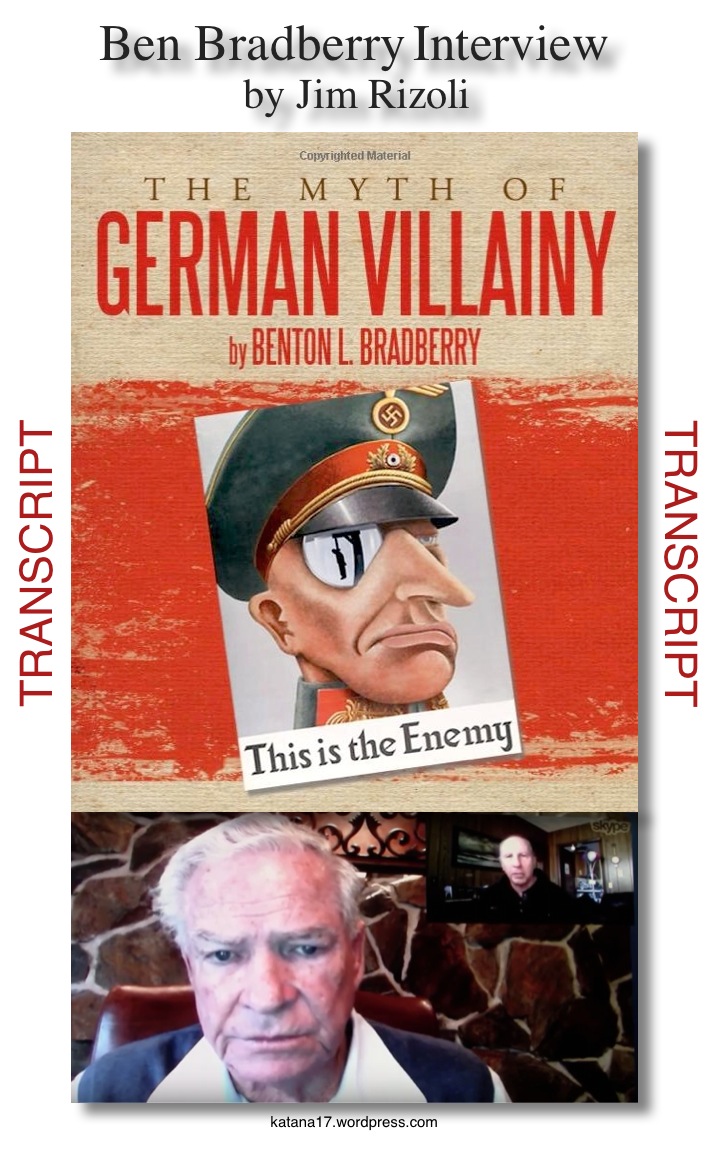
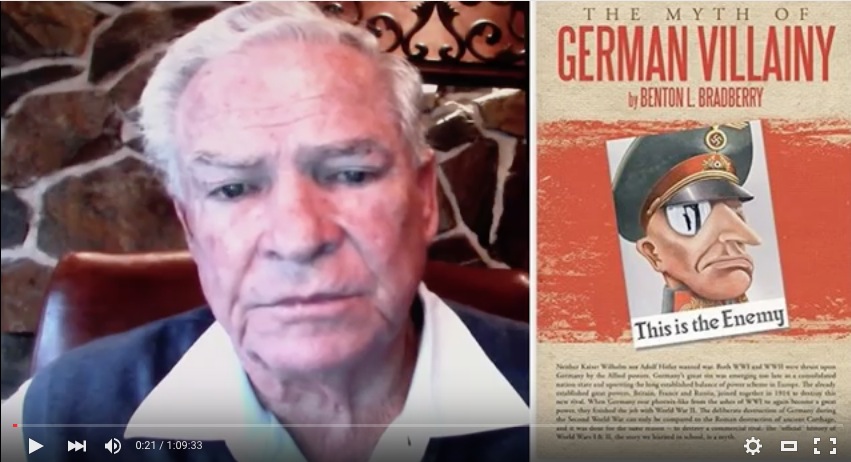
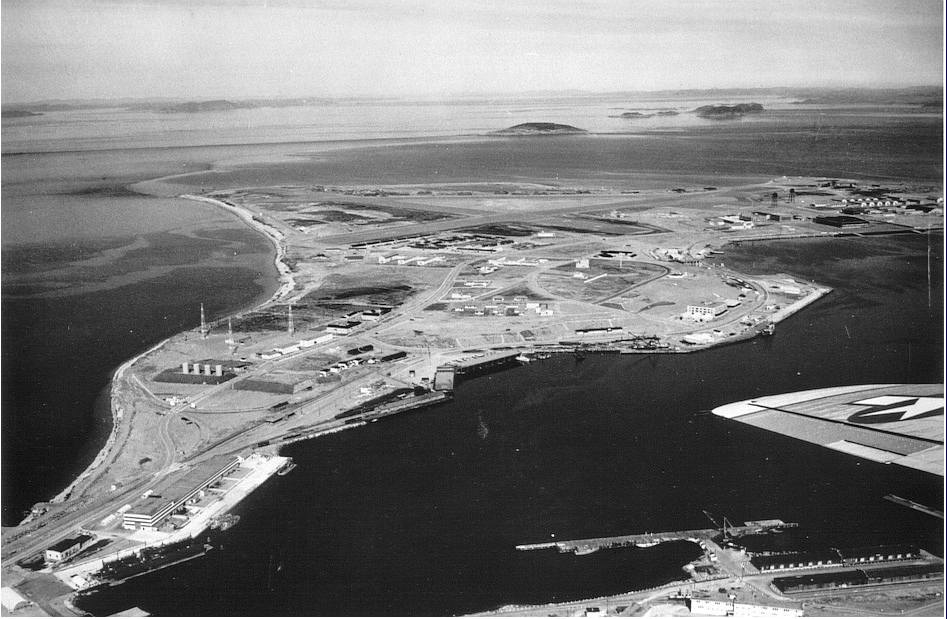
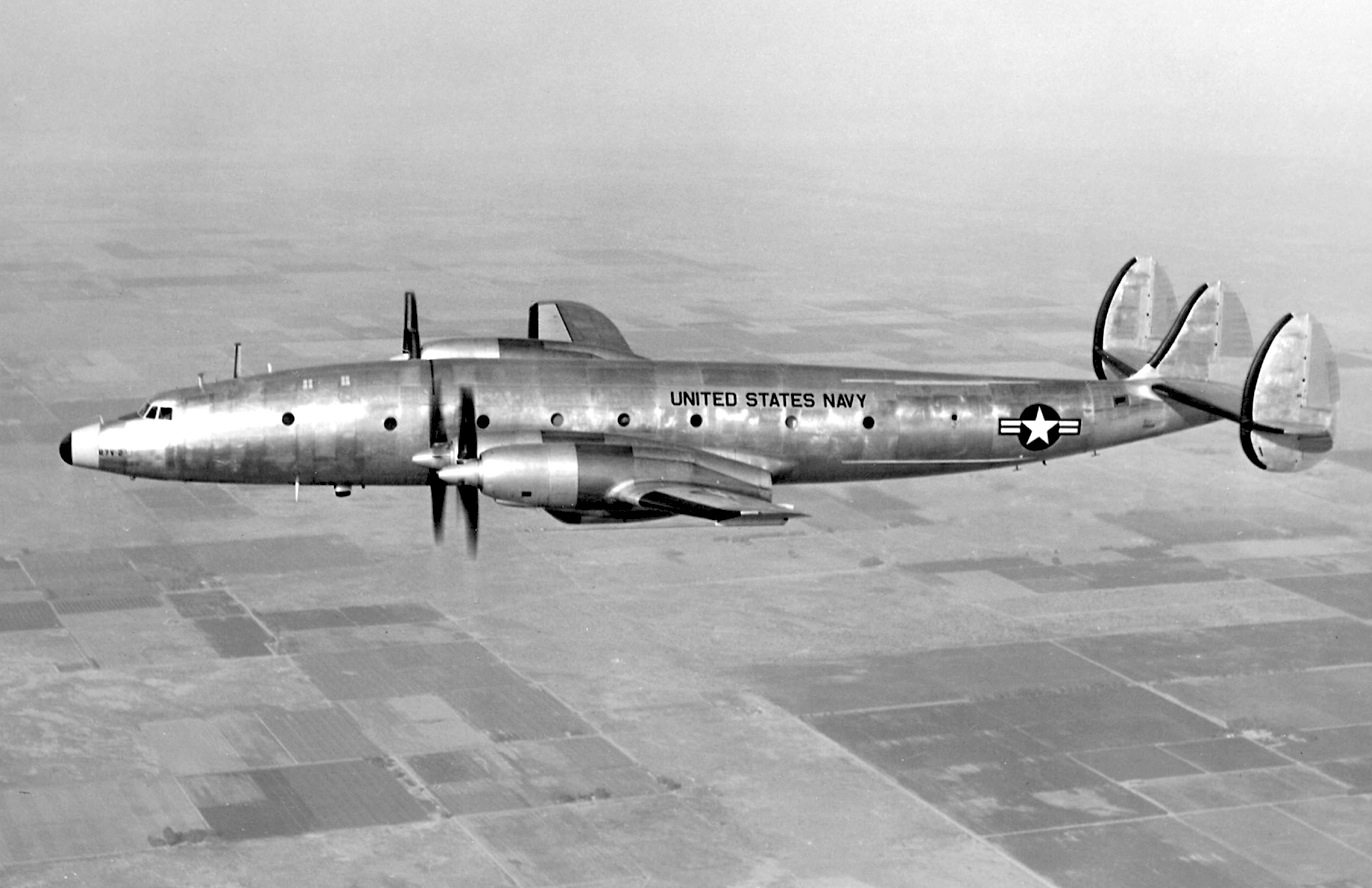
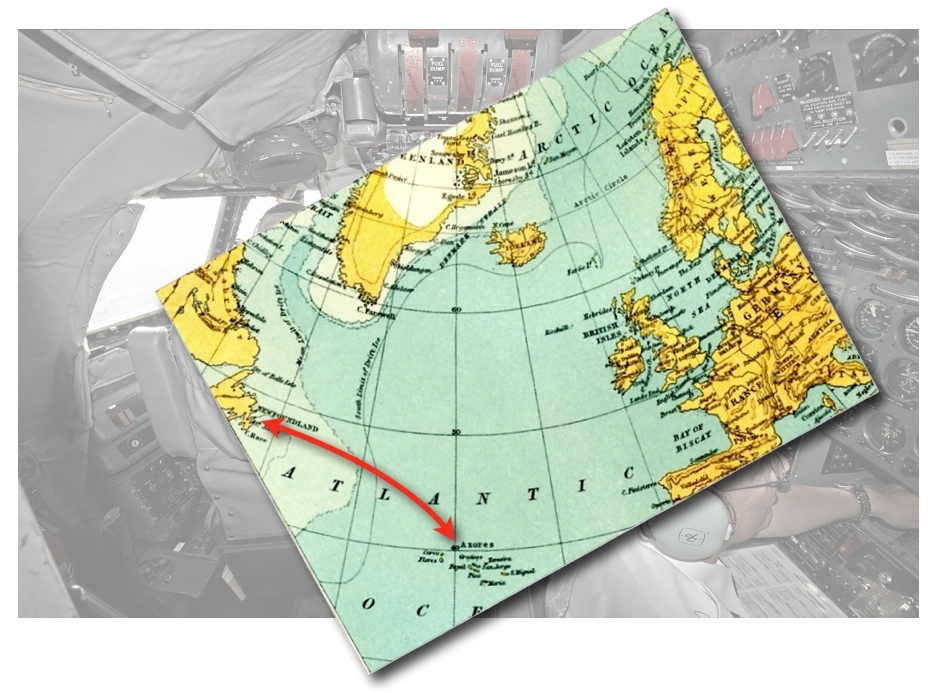

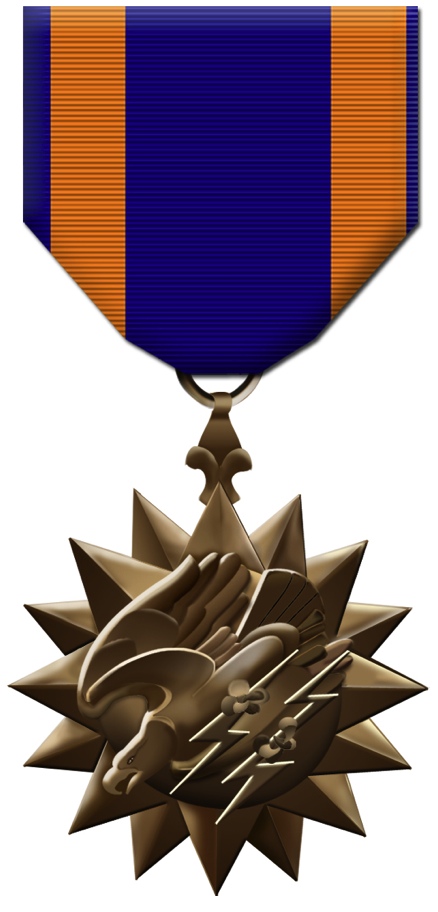
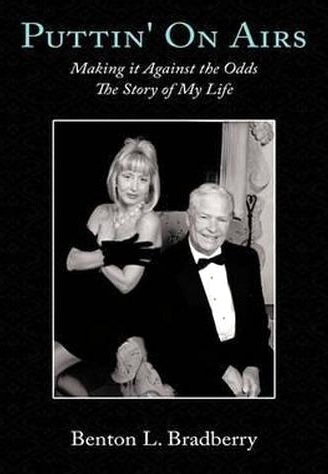
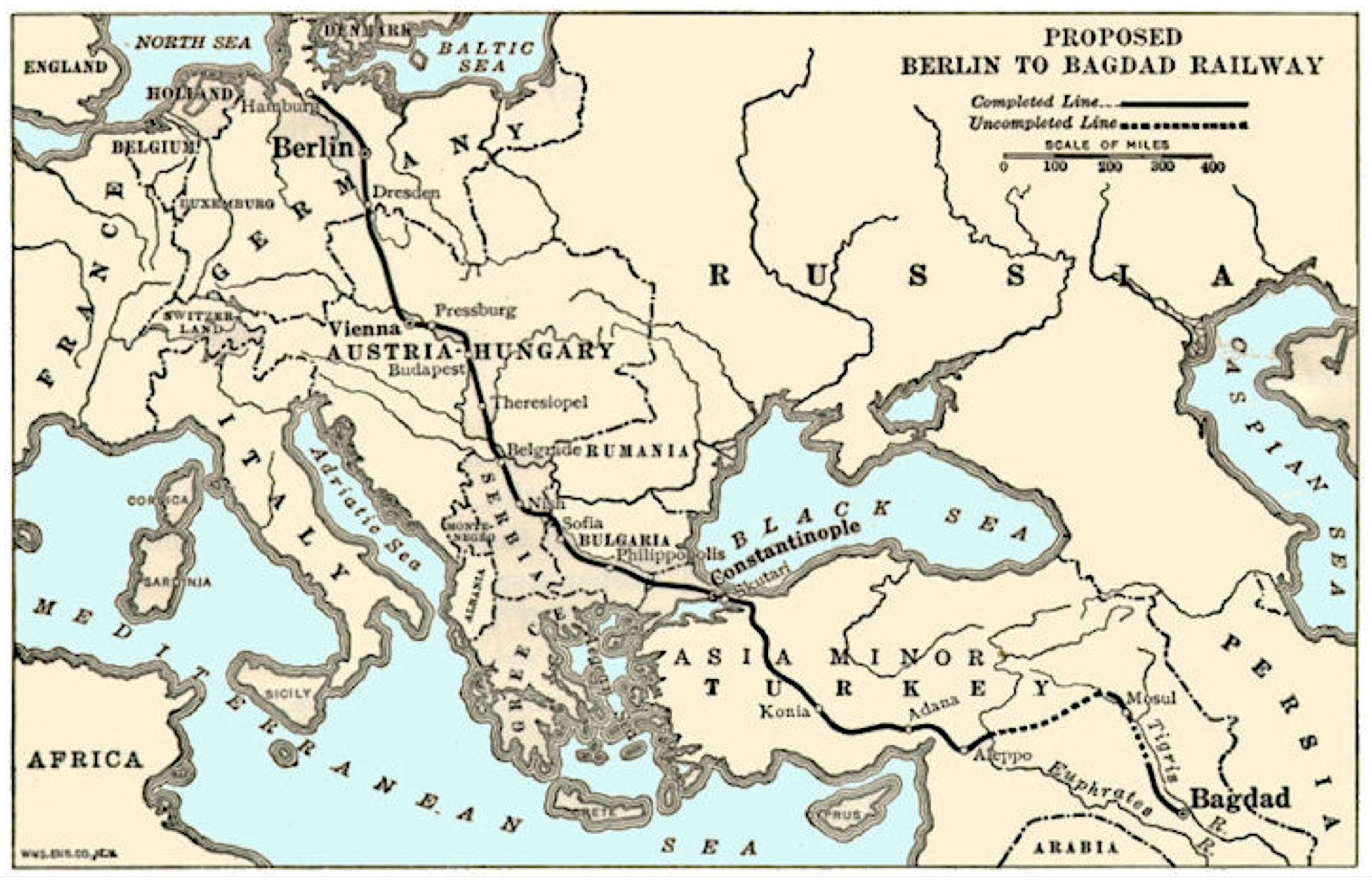
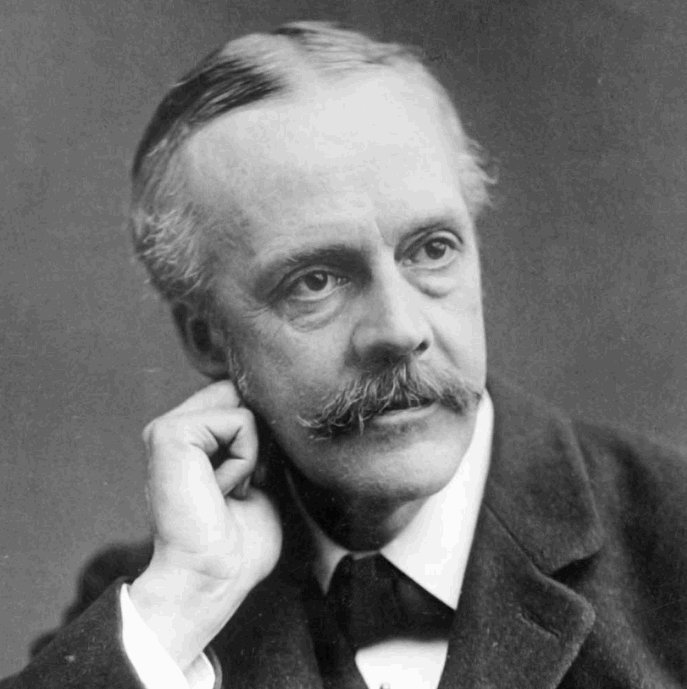
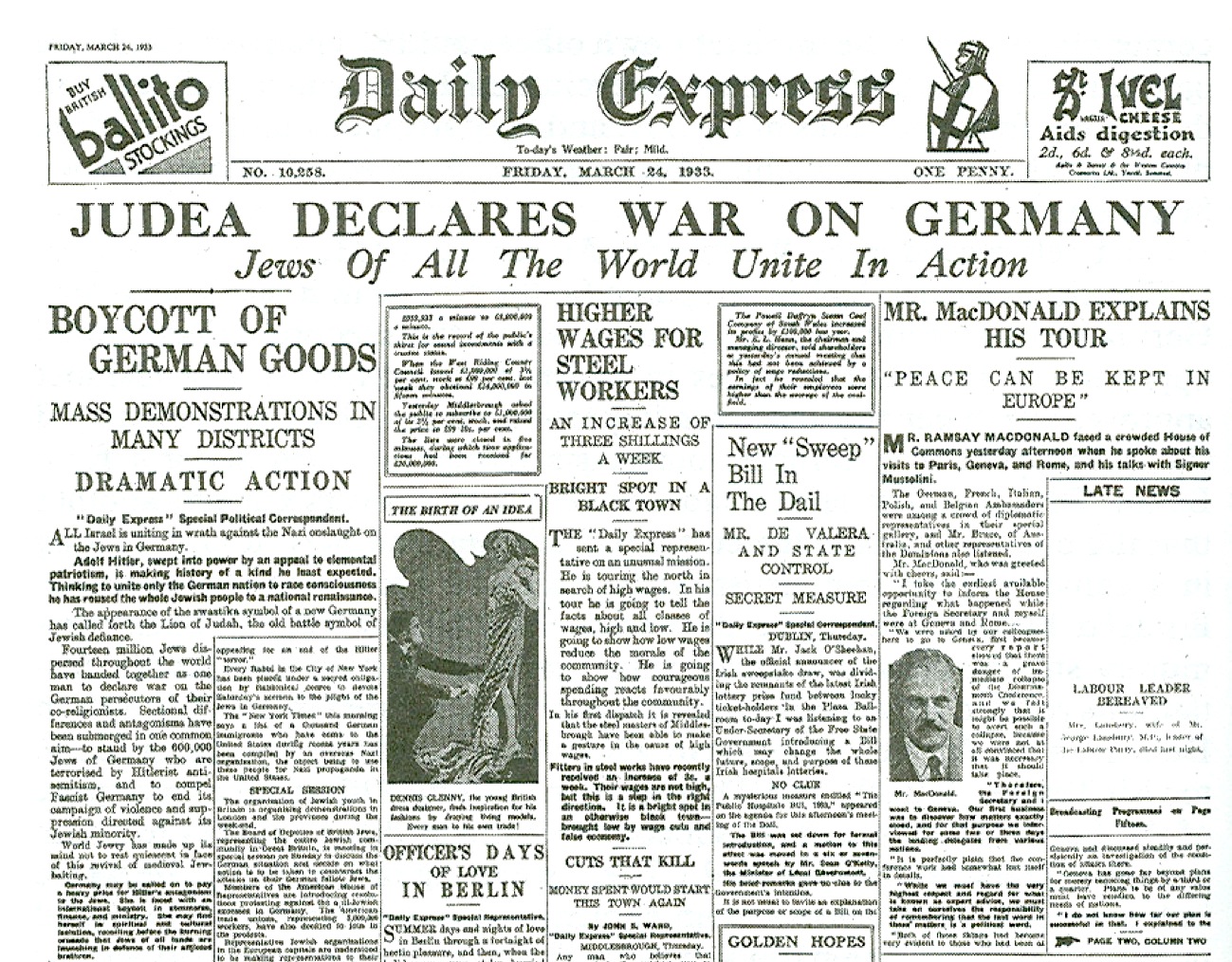
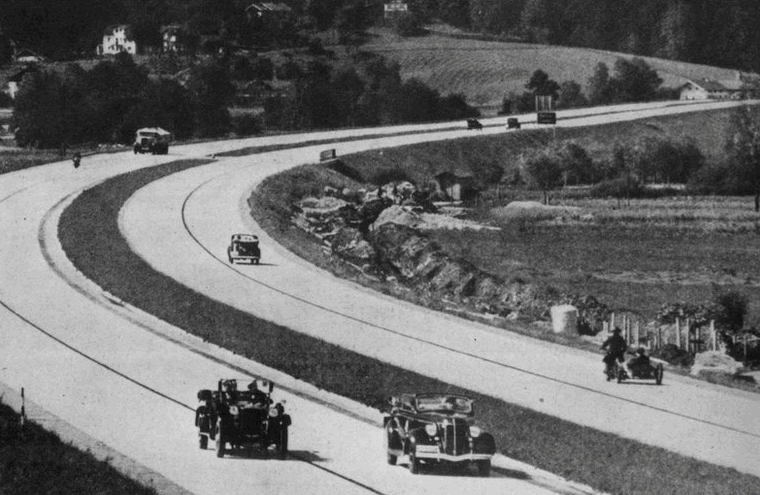

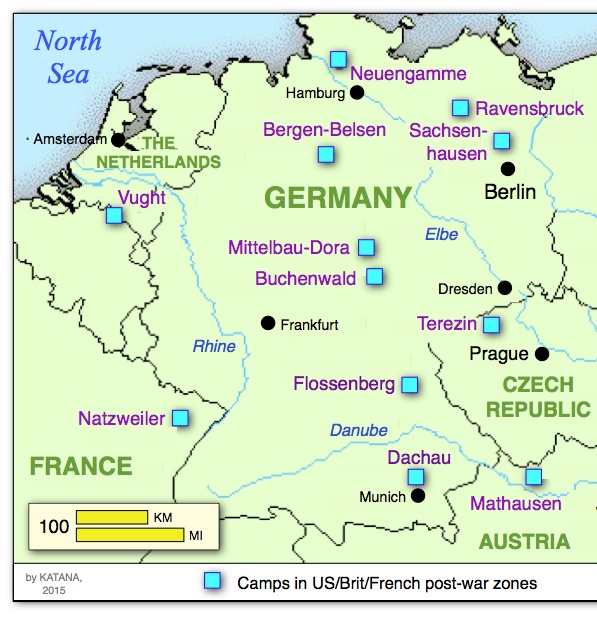
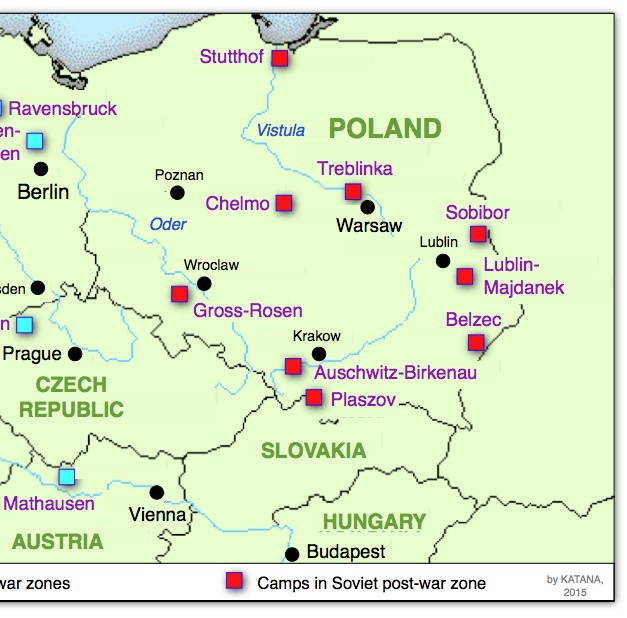
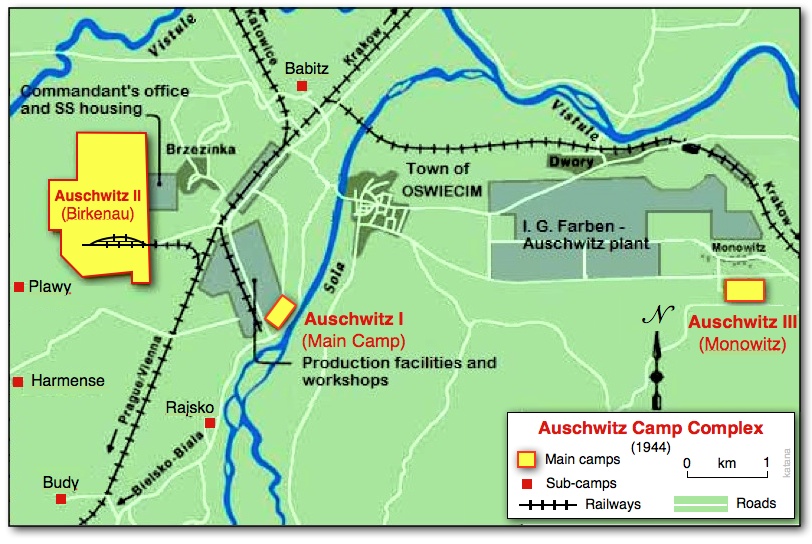
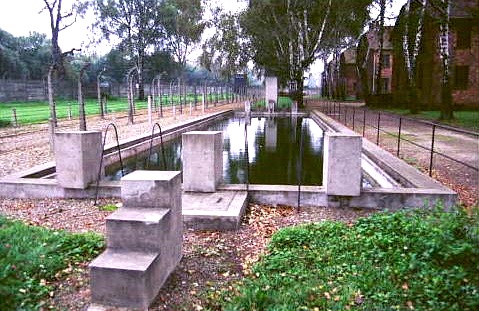
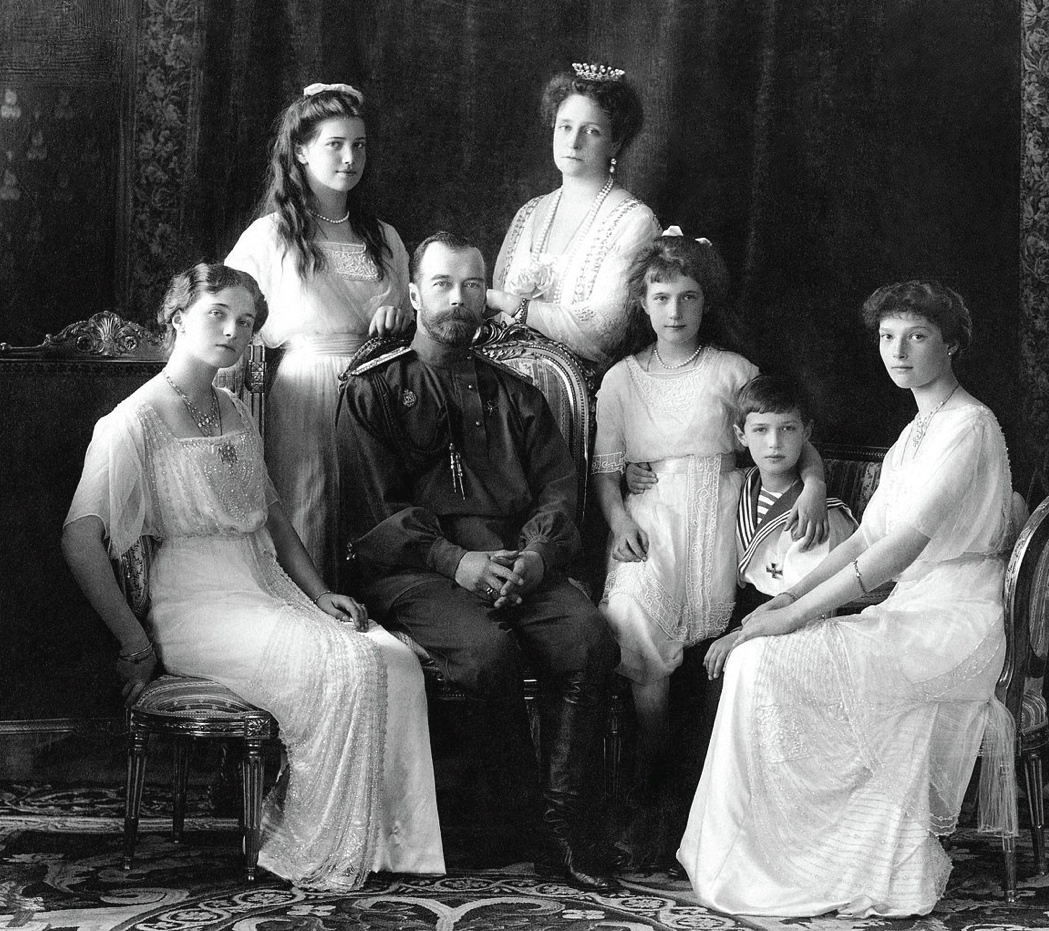

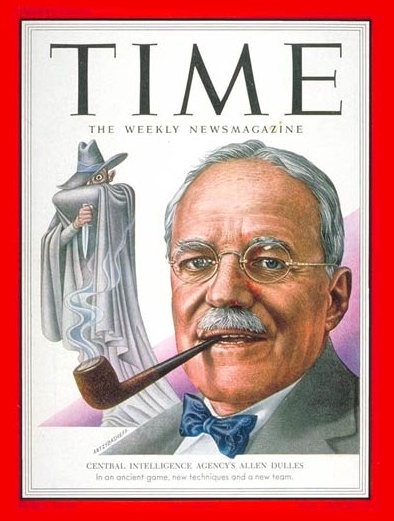
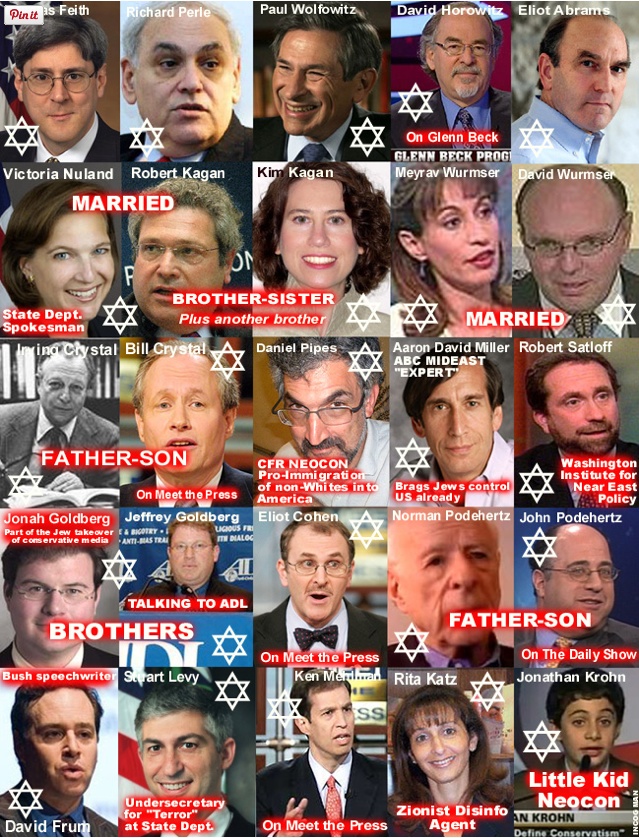



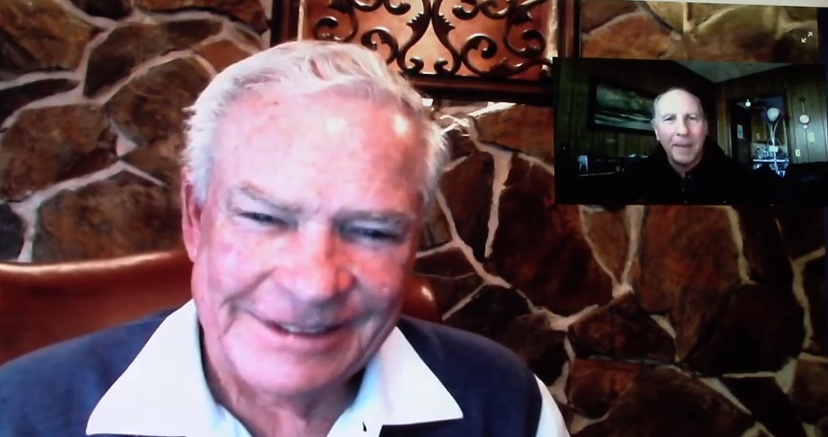
I will do this transcript for you, Katana. I love this book and this guy. It will take a couple days.
That would be extremely generous of your time Anon! For me every 5 minutes takes at least an hour, so, to do 65 minutes is a minimum of 13 hours, but more likely 16 hours of work.
How about I put you down for 15 minutes (05:00 to 20:00) and you can then let me know later about doing successive time slots?
That said, if you really are willing to do the whole thing, I’ll put you down for that. In that case if you could manage to do it over a couple of weeks or so, that would be great.
My reply didn’t link to my email there it seems. I’m at [email address removed for privacy]. I’ll have this done tomorrow. Great interview.
Hi mblaineo!
I got your email OK in the field that you fill in when making a post. I’ve removed the one in your comment for your own privacy. I can put it back if you like, though.
Oh hey Katana, I see your reply there now. I’m actually a transcriptionist by trade so it’s no big deal for me. I’ll make this baby look gooooood.
Many thanks in advance!
Thirteen hours! Well, all I can say is I’d starve if that were true. :O) It actually takes three to four times the audio length depending on how fast people talk.
Well, that’s damn fast! Obviously you are a touch typist, something that I should have learnt years ago, but didn’t because I got reasonably quick using sight.
Without giving away any trade secrets, do you have any tips on how to increase ones transcription speed? There’s a lot of material out there that I would like to transcribe.
You know what, I do type fast, it’s true, about 100 words per minute on a good day. But what happened just in the last couple of months is I broke my right arm and I had to find a way to keep working so I bought a copy of Dragon Naturally Speaking version 12, which is the one before the current one, for $50 on Amazon and I’ve been using it to keep going. I can type again now, but I’m still using Dragon for the rough draft. It’s not actually faster for me, because of the errors that you have to keep correcting, but it’s a lot less strain on the arm muscles. I’ve heard the native Windows speech recognition isn’t bad itself if you want to try that out first. You’ll need a headset. This Koss CS100 for $15 at Amazon works really well.
But yeah, you have to type for years, and transcription itself is a whole different ballgame. I thought I knew transcription from working for years as a word processor in law firms and doing it somewhat regularly. Then I took a job doing it full-time and got schoooooooled. I’ll show you what it looks like with this transcript. Somebody has to show you the conventions and then you’ve just got to spend a few years learning how to really listen to what people say.
Thanks for that info.
I’ve tried using Siri on my iPhone and it works fairly well. But the time spend fixing the errors makes it take much the same as typing it manually.
I’m on a Mac, and use Transcribe! software which allows you to slow the speech down and get it to repeat. I can see how a foot pedal would help a lot .
Do you use shorthand at all, or just type it all out?
Thanks.
Shorthand no. That’s what court transcribers do, then they take it home and type it out. You know that. That pays pretty well, around $60 an hour I think for the time they spend in court, or depositions actually mostly. Nope, I’m just a lowly typist.
Send me an email so I can send you back this transcript. It’s pretty close to done. 20 minutes left.
OK, just sent you an email.
Re shorthand, I was thinking that it would save you time using abbreviations for common words that you can then have automatically expand out into the full text, etc.
Oh yeah, I totally do that. There’s probably a hundred auto replace entries that I built up in Word. yk=you know, im=i mean, bec=because, that sort of thing. I still use Word 2003, since all the versions from that up to 2013 are rubbish. 2013 is good though. You’re on a mac so that won’t matter to you, but if somebody else reads this.
And keyboard: Kinesis Freestyle 2 with the extensions. I don’t think there’s anything better for the money. The Goldwaves are the competitor but I’ve never tried them.
Oh, and of course you need Express Scribe and an Infinity foot pedal. Express Scribe is free to use with limited functionality — only certain types of files and without a foot pedal, which is pointless. It’s something like $25 to buy. It’s from an Australian company, and there really is no substitute that I know of. Infinity foot pedals are $50 and last forever basically.
Re transcription. Seriously check out this http://www.ibm.com/smarterplanet/us/en/ibmwatson/developercloud/speech-to-text.html
It’s about 95% accurate (ie still lots of editing left to do). You get 1000 minutes free per month; 0.02 per minute after that. I’ve experimented; you can put a big chunk (don’t know the limit) in their demo app.
I was impressed; you may be too if you’ve ever done a lot of transcription.
Thanks jracki for that info.
I’ll check it out.
Great job with that….
Jim Rizoli
[removed email for privacy]
Pingback: Gas Chambers? Jim Rizoli Interviews Fred Leuchter: His Story, His Way — TRANSCRIPT – aladdinsmiraclelamp
like the jews jermans trying to portray themselves as victims and alter boys
Pingback: Those Who Dare To Review History |
Pingback: Book - The Myth of German Villainy - Part 08 - Jews in Weimar Germany - katana17katana17
Pingback: Book - The Myth of German Villainy - Part 02 - Aftermath of the War in Germany - katana17katana17
Pingback: Book - The Myth of German Villainy - Part 05 - The Red Terror - katana17katana17
Pingback: Book - The Myth of German Villainy - Part 07 - The Nation of Israel - katana17katana17
Pingback: Book - The Myth of German Villainy - Part 21 - Germany as Victim - katana17katana17
Pingback: Book - The Myth of German Villainy - Part 12 - The Nazis and the Zionists Actually Work Together ... - katana17katana17
Pingback: Book - The Myth of German Villainy by Benton Bradberry - Part 01 - katana17katana17